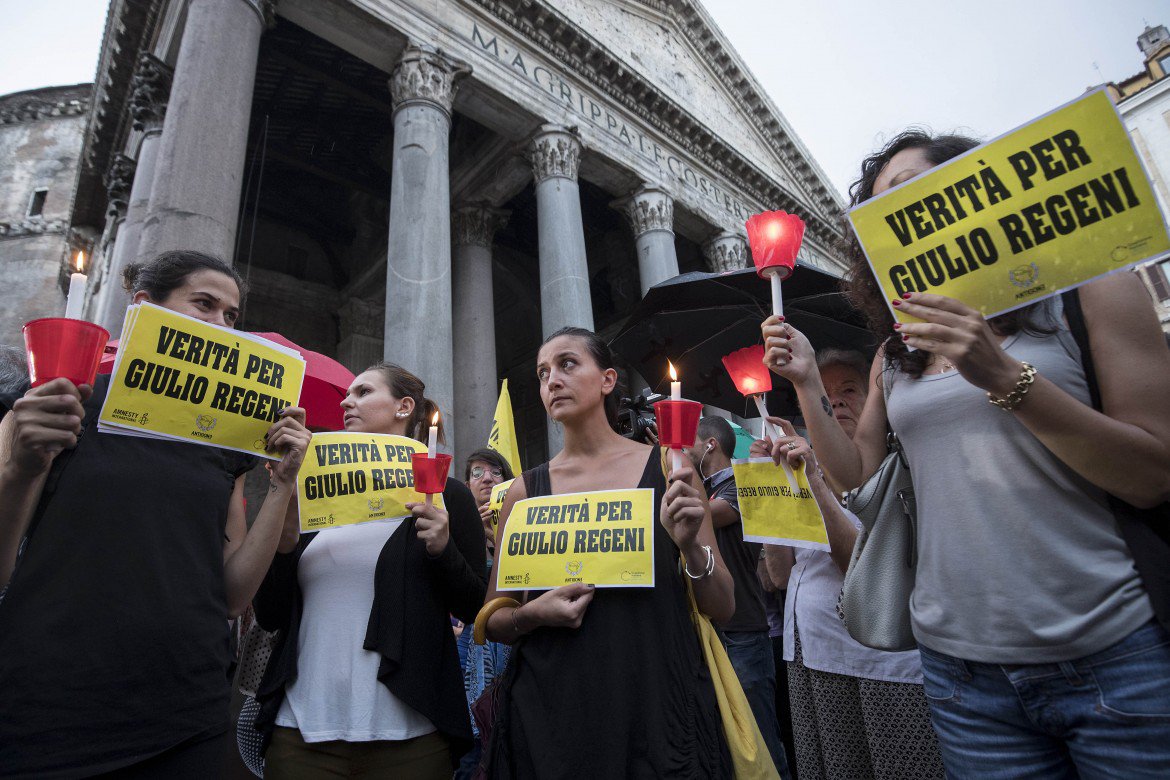Egypt
Cambridge believed the risks to Giulio Regeni were zero
In documents provided by Giulio Regeni’s institution, Cambridge University, show that he and his supervisor believed investigating Egyptian trade unions did not present any danger.

Giulio Regeni and his supervisor at Cambridge University, Maha Abdelrahman, signed a risk affidavit stating there was no danger in investigating independent Egyptian trade unions in the field.
It was one of the documents the British university handed over to prosecutors in Rome on Aug. 22, after the request letter dated June 6. Ten folders containing a personal file on Abdelrahman and emails sent and received by Regeni’s email account at the university. The actual details on the research itself were missing: who created the research plan and who provided union contacts to Regeni in Cairo.
But the risk affidavit generates obvious questions: Is it possible that an Egyptian professor, who had suffered repression by Cairo in the past, and a university of international renown (which conducts research all around the world) would not know the dangers of a country prey to the widespread control of secret services and police? Especially in light of the subject matter: Unions were the backbone of the 2011 revolution, and even today, they are constantly monitored by the government.
Meanwhile, on Thursday the third round of meetings between Italian and Egyptian investigative teams opened in Rome. Attorney General Nabil Ahmed Sadek met prosecutor Giuseppe Pignatone yesterday and today.
According to the Egyptian daily al-Akhbar, Sadek “will present new information found to uncover the truth about the death of the researcher.” The work is divided into three sessions, in the hope that the materials brought from Cairo are more substantial than those few documents delivered in the spring.
The focus must remain high, especially in light of the news coming every day from Egypt. On Wednesday, another prisoner died in jail for lack of medical care. Forty-year-old Sobhi Orabi, a professor at Al-Azhar University, was arrested in December 2015 and sentenced to three years for unauthorized protests; he died of a heart attack.
He had asked to see a doctor for severe pain in the chest, but the assistance was denied. One more case added to the 71 registered since the creation of the Nadeem Center, an Egyptian NGO: deaths caused by lack of care or directly due to the violence of the guards.
Last week Abdallah M. E, 58, passed away in the same way. On Monday, Aug. 29, Ahmed Kamal, a 28-year-old medical student, was arrested and beaten. He died of his injuries the following night.
The authorities deny this, despite the clear signs on his body, but the Kamal family will not yield. “Not only have they tortured him and killed him within 24 hours,” his father said, “but they have stained his reputation by saying that he was arrested in a house of prostitution and he died while trying to escape.” Ahmed had been condemned to a two-year sentence, imposed in February for unauthorized protests.
“How would it be possible for my son not to have broken bones if he jumped from the window? He had signs of cigarette burns and electric shocks,” the father said. His words are added to the testimony of his sister: That evening, Kamal was at home studying for an English exam. He was about to leave for Pennsylvania for an internship in neurosurgery. When she came home a few hours later, he was not there anymore.
The cases of enforced disappearance are a growing phenomenon. In an effort to limit it, the Egyptian Commission for Rights and Freedoms (its president, Ahmed Abdallah, a consultant of the Regeni family, has been held since April 25) has created an app for smartphones. The “I Protect” app for Android sends messages instantly to the association and three contacts chosen by the user, indicating the coordinates of the place of detention, either official or unofficial.
The commission hopes that with this timely information, it will be able to act immediately, within 24 hours of arrest, to prevent disappearance and torture. “The app,” explains its developer, anonymously, “looks like a calculator and only the user can open it with a secret code.” With this safety feature, they want to avoid another widespread phenomenon: the sprawling espionage by the intelligence services on computers and cell phones, made possible thanks to technologies sold by Western companies, including Italian ones like Hacking Team, in the past, and Area Spa today.
Aside from the threat of prison, Egyptians are under the constant strain of crisis. “They want to keep us busy looking for bread, so we do not think about anything else, (like) protests,” says Imad, a public employee. But the real earthquake, the once that can reverse the last regime, will come from poverty. Bread and freedom, millions of Egyptians shouted in Tahrir Square, and since then, the situation has only worsened. The current political and social violence is unsustainable.
Originally published at http://ilmanifesto.info/per-cambridge-il-rischio-di-regeni-era-zero/ on 2016-09-08
